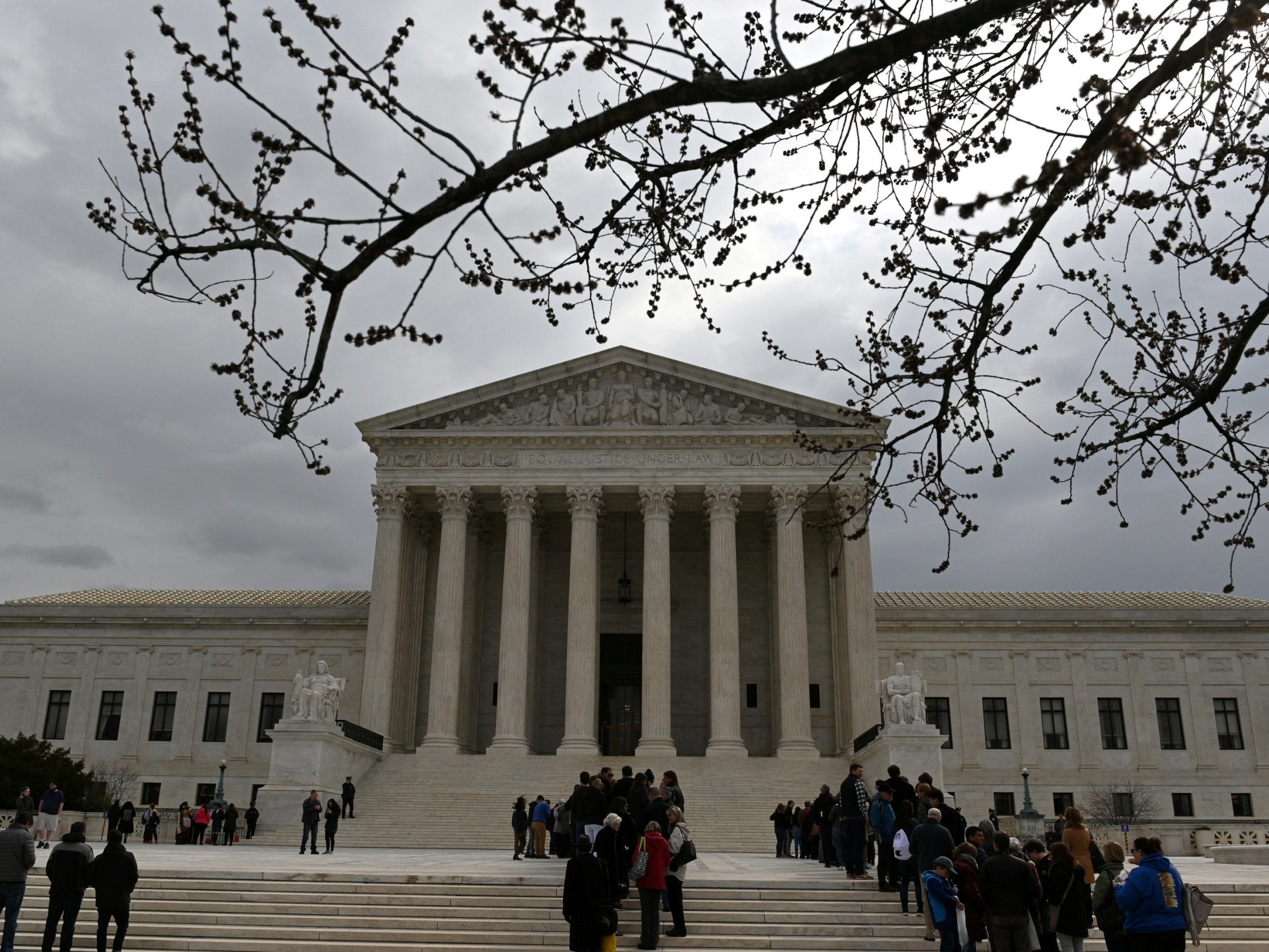Trump gets Supreme Court victory as judges allow immigrant detention ‘indefinitely without bail’
Dissenting liberal minority says ruling gives US government power to detain people for minor crimes years after their release

Your support helps us to tell the story
From reproductive rights to climate change to Big Tech, The Independent is on the ground when the story is developing. Whether it's investigating the financials of Elon Musk's pro-Trump PAC or producing our latest documentary, 'The A Word', which shines a light on the American women fighting for reproductive rights, we know how important it is to parse out the facts from the messaging.
At such a critical moment in US history, we need reporters on the ground. Your donation allows us to keep sending journalists to speak to both sides of the story.
The Independent is trusted by Americans across the entire political spectrum. And unlike many other quality news outlets, we choose not to lock Americans out of our reporting and analysis with paywalls. We believe quality journalism should be available to everyone, paid for by those who can afford it.
Your support makes all the difference.The Supreme Court has given Donald Trump an important victory by endorsing the US government’s authority to detain immigrants waiting to be deported at any time, even years after they have completed prison terms for criminal convictions.
The 5-4 ruling saw the court’s conservative justices overcoming liberal dissent, and essentially allowing US immigration enforcement to detain such immigrants indefinitely and at any time.
In writing the majority ruling, justice Samuel Alito left open the possibility individual immigrants could challenge the law on constitutional grounds should they be detained long after serving their criminal sentence.
He wrote that the ruling was not intended for “extreme” situations in which immigrants had left prison many years before and gone on to lead productive and law-abiding lives.
But, mirroring concerns expressed by conservative justices during oral arguments that detention manpower and resources can be limited when an individual is released, he said it was ridiculous to expect Department of Homeland Security officials to “turn into pumpkins” just because an ex-con immigrant is released.
Justice Stephen Breyer, in his dissent, questioned whether Congress “meant to allow the government to apprehend persons years after their release from prison and hold them indefinitely without a bail hearing” when writing the law in question.
Mr Breyer continued, warning from the bench that the majority’s decision gives too much power to the federal government.
“It is a power to detain persons who committed a minor crime many years before,” he said. “And it is a power to hold those persons, perhaps for many months, without any opportunity to obtain bail.”
The Trump administration had argued a lower court ruling that immigrants would undermine the US government’s ability to deport immigrants who had committed crimes,
The case involved two legal US residents who filed separate lawsuits in 2013, a Cambodian immigrant and a Palestinian.
The Cambodian immigrant, Mony Preap, had been convicted previously for marijuana possession. The Palestinian immigrant, Bassam Yusuf Khoury, was previously convicted of attempting to manufacture a controlled substance.
The US law in question allows the government to detain immigrants indefinitely during their deportation proceedings, and without a bond hearing, after completing prison sentences.
During oral arguments, American Civil Liberties Union attorney Cecillia Wang said the law requires immigrants to be detained immediately after their release.
But conservative justices baulked at the idea, but acknowledged some grey areas exist.
“It’s not reasonable if they don’t have enough people to do it,” chief justice John Roberts said. “I don’t know what’s reasonable in this situation. A month?”
Join our commenting forum
Join thought-provoking conversations, follow other Independent readers and see their replies
Comments